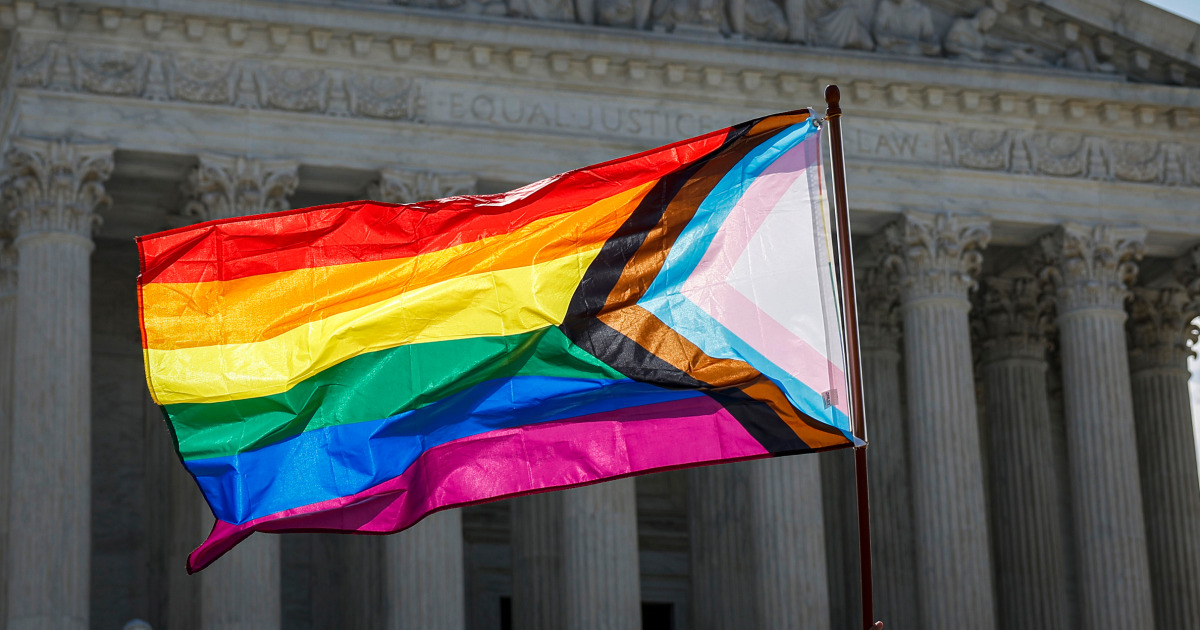Progress Amidst Pushback: LGBTQ Rights in Corporate America
In an era marked by rapid social change, the advancement of LGBTQ rights within corporate America has become a focal point of both progress and resistance. Despite encountering significant conservative pushback, many organizations dedicated to LGBTQ rights are reporting notable enhancements in corporate policies and practices across the United States. This evolving landscape underscores the resilience and commitment of companies to foster inclusive workplaces, reflecting a broader cultural shift towards acceptance and equality.
The Current Landscape of LGBTQ Rights in Corporations
Corporate America is increasingly recognizing the importance of LGBTQ rights, not just as a legal obligation but as a moral imperative. According to the Human Rights Campaign (HRC), approximately 91% of Fortune 500 companies now have non-discrimination policies that include sexual orientation and gender identity. This is a significant increase from previous decades, indicating a growing recognition of the importance of diversity and inclusion.
However, this progress has not been without its challenges. The backlash from conservative groups and individuals has intensified, particularly in response to high-profile corporate initiatives that support LGBTQ rights. Despite this pushback, many companies have doubled down on their commitment to inclusivity, implementing programs aimed at supporting LGBTQ employees and communities.
Corporate Policies and Initiatives Supporting LGBTQ Rights
There are several key areas where corporate policies have evolved to support LGBTQ rights:
- Non-Discrimination Policies: Firms are increasingly adopting comprehensive non-discrimination policies that protect employees from discrimination based on sexual orientation and gender identity.
- Employee Resource Groups (ERGs): Many corporations have established ERGs for LGBTQ employees, providing a platform for networking, support, and advocacy within the workplace.
- Inclusive Benefits: Companies are beginning to offer benefits that cater to LGBTQ employees, including same-sex partner health benefits, gender transition support, and mental health services tailored to the LGBTQ community.
- Training and Education: Organizations are investing in training programs that educate employees about LGBTQ issues, aiming to foster a culture of understanding and acceptance.
Understanding the Pushback Against LGBTQ Rights in Corporate Settings
The pushback against LGBTQ rights in corporate America often stems from deeply rooted social and cultural beliefs. Some conservative groups argue that corporate support for LGBTQ rights undermines traditional values and poses a threat to religious freedoms. This viewpoint has led to public campaigns against companies perceived to be too progressive or inclusive.
For instance, companies like Disney and Target have faced boycotts and backlash for their support of LGBTQ initiatives. These reactions highlight the ongoing cultural divide regarding LGBTQ rights, illustrating that while progress is evident, significant resistance remains. However, it’s important to note that many consumers support companies that advocate for LGBTQ rights, demonstrating a shift in public sentiment.
The Role of Corporate Social Responsibility (CSR)
Corporate social responsibility plays a pivotal role in how companies approach LGBTQ rights. Many organizations are recognizing that supporting LGBTQ rights not only aligns with ethical standards but also enhances their brand reputation and fosters customer loyalty. Key elements of CSR related to LGBTQ rights include:
- Community Engagement: Companies are engaging with LGBTQ organizations and communities, contributing to local events and initiatives that promote inclusivity.
- Advocacy: Corporations are leveraging their influence to advocate for LGBTQ-friendly policies at local, state, and national levels, thereby amplifying the voices of marginalized communities.
- Transparency: Many companies are being transparent about their policies and initiatives, publishing reports on their diversity and inclusion efforts to hold themselves accountable.
The Business Case for LGBTQ Inclusion
Beyond ethical considerations, there is a strong business case for fostering LGBTQ inclusion in the workplace. Research has shown that diverse and inclusive workplaces lead to better business outcomes. For instance:
- Increased Innovation: Diverse teams bring a variety of perspectives, leading to more innovative solutions and ideas.
- Enhanced Employee Satisfaction: Employees who feel accepted and valued are more likely to be engaged, leading to higher productivity and lower turnover rates.
- Broader Talent Pool: Companies that prioritize inclusion attract top talent from a wider pool, enhancing their competitiveness in the market.
Success Stories: Companies Leading the Way
Several companies have stood out as leaders in promoting LGBTQ rights and inclusion within their workplaces. Notable examples include:
- Salesforce: This tech giant has made significant strides in advocating for LGBTQ rights, implementing robust policies that support LGBTQ employees and contributing to LGBTQ charities.
- Apple: Apple has consistently ranked high on the HRC’s Corporate Equality Index and actively supports LGBTQ rights through both internal policies and external advocacy.
- Microsoft: Microsoft not only provides comprehensive benefits for LGBTQ employees but also engages in advocacy efforts to promote LGBTQ rights globally.
Looking Forward: The Path Ahead for LGBTQ Rights in Corporate America
As we move forward, the commitment of corporate America to LGBTQ rights will be crucial in shaping the future landscape of workplace inclusivity. The efforts of organizations, employees, and advocates will continue to drive change, despite the pushback faced along the way. The resilience demonstrated by both companies and LGBTQ rights organizations signals a hopeful outlook for a more inclusive future.
It is clear that while challenges remain, the tide of corporate support for LGBTQ rights is strengthening. By fostering inclusive workplaces, companies not only enhance their own cultures but also contribute to a broader societal shift towards acceptance and equality. The journey towards full equality is ongoing, but the strides made in corporate America illustrate a significant step forward in this vital movement.
Conclusion
In conclusion, the progress amidst pushback regarding LGBTQ rights in corporate America reflects a dynamic and evolving landscape. As organizations continue to champion inclusivity, they not only create better workplaces but also pave the way for societal change. The commitment to LGBTQ rights will undoubtedly shape the future of corporate culture, fostering environments where everyone can thrive, regardless of their sexual orientation or gender identity.
See more Business Focus Insider Team

